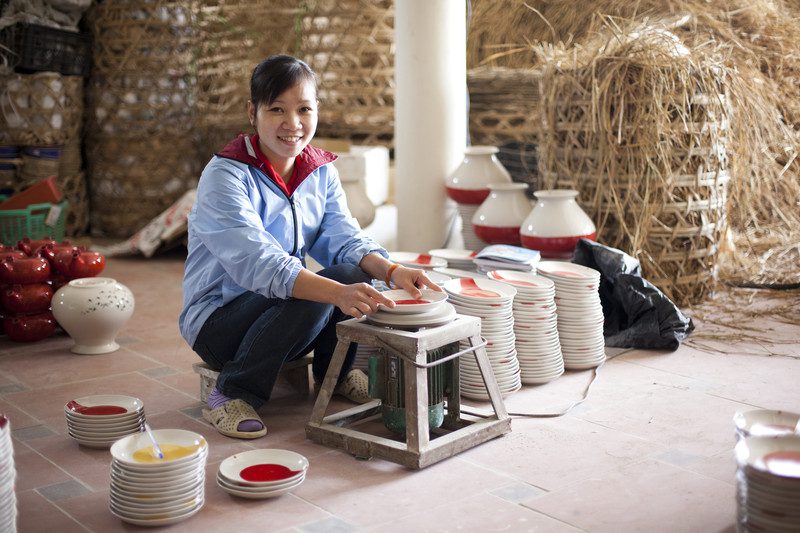Ethical standards
Ethical fundraising
Our Private Sector Engagement Policy requires us to screen corporate donors and trusts to assess if their activities and operations are compatible with our vision and values.
It is our policy not to accept donations from organisations that have a bad record on social, financial and environmental conduct or whose operations impact negatively on development in poor countries*.
In declining to accept funds, sponsorships or other in-kind support from these organisations, we are able to uphold our professional image and reputation and speak out with authority on social justice issues.
Ethical purchasing
Under our Ethical Procurement and Purchasing Policy, we strive to buy goods and services that are produced and delivered under conditions that:
- do not involve the abuse or exploitation of people
- have the least negative impact on the environment
- come from suppliers whose conduct is in keeping with our policy
Our office kitchens and our Oxfam Trailwalker events only stock Fairtrade tea and coffee and the clothing for our Oxfam Trailwalker events, public campaigns and youth activities are sweatshop-free and produced according to Ethical Clothing Australia standards.
Oxfam Shop is an accredited Fair Trader of Australia under the Fair Trade Association of Australia and New Zealand’s accreditation system.
Ethical investments
Our investments in equities are assessed against our private sector engagement guidelines and a positive screen is applied, under the guidance of the Director Public Policy and Outreach.
Under the guidelines and screening, investments in private sector organisations operating within specified industry categories are evaluated to determine whether they present an ethical risk to our advocacy and program work.
Ethical content gathering
Our Ethical Guidelines for Content Gathering are designed to ensure that we conduct interviews and gather photos and video related to our work in a respectful and ethical way.
This means we must gather content in a way that puts people, their rights and their concerns at the heart of our efforts and present their stories in ways that challenge traditional ideas about poverty and development.
Our aim is to:
- prevent people experiencing harm, persecution, or other losses as a result of being featured in our materials
- respect and empower individual participants and recognise they each have their own values, beliefs and customs and the capacity to determine the direction of their lives
- ensure that content gathering has a potential benefit to the participants involved and that the likely benefit justifies any risks of harm or discomfort
Oxfam’s primary accountability is to the people at the centre of our work. In communications that means we must uphold voluntary participation, informed consent, participants’ safety and their right to confidentiality.
Child protection
We are committed to the safety and protection of children in the communities where we work.
Our Child Protection Policy protects children from all forms of exploitation and abuse in the delivery of our programs. Our Child Protection Code of Conduct ensures that all representatives of Oxfam Australia are given clear guidance about the standards of behaviour and practice required of them at all times when they are in contact with children.
Child protection awareness sessions are mandatory for all staff and all programs are required to conduct a child protection risk assessment.
